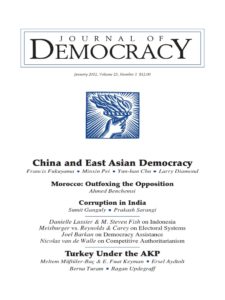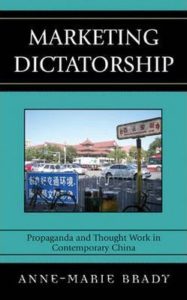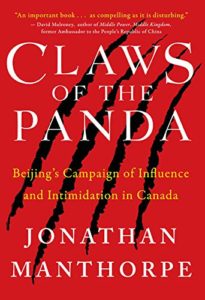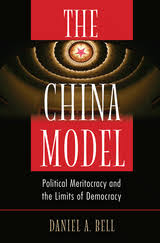 Wen Ruchun
Wen Ruchun
To promote its standing in China, JPMorgan Chase turned to a seemingly obscure consulting firm run by a 32-year-old executive named Lily Chang.
Ms. Chang’s firm, which received a $75,000-a-month contract from JPMorgan, appeared to have only two employees. And on the surface, Ms. Chang lacked the influence and public name recognition needed to unlock business for the bank.
But what was known to JPMorgan executives in Hong Kong, and some executives at other major companies, was that “Lily Chang” was not her real name. It was an alias for Wen Ruchun, the only daughter of Wen Jiabao, who at the time was China’s prime minister, with oversight of the economy and its financial institutions.
JPMorgan’s link to Ms. Wen — which came during a time when the bank also invested in companies tied to the Wen family — has not been previously reported. Yet a review by The New York Times of confidential documents, Chinese public records and interviews with people briefed on the contract shows that the relationship pointed to a broader strategy for accumulating influence in China: Put the relatives of the nation’s ruling elite on the payroll.
And the Wen family’s sway was not just political. After Ms. Wen’s father joined the inner circle of China’s rulers as vice prime minister in 1998, the family amassed a secret fortune through a series of partnerships and investment vehicles, a 2012 investigation by The Times found.
Now, United States authorities are scrutinizing JPMorgan’s ties to Ms. Wen, whose alias was government approved, as part of a wider bribery investigation into whether the bank swapped contracts and jobs for business deals with state-owned Chinese companies, according to the documents and interviews. The bank, which is cooperating with the inquiries and conducting its own internal review, has not been accused of any wrongdoing.
The investigation began with an examination of the bank’s decision to hire the daughter of a Chinese railway official and the son of a former banking regulator who is now the chairman of a state-controlled financial conglomerate. The contract with the consulting firm of Ms. Wen, 40, indicates that the bank’s hiring practices also touched the highest rungs of political power in China. Her father was prime minister from 2003 until earlier this year. Her mother has served as a government official with oversight of the nation’s gem and diamond industry. And since 2006, Ms. Wen’s husband has been an official at the China Banking Regulatory Commission, according to China Vitae, an online database.
For Ms. Wen’s consulting firm, Fullmark Consultants, the JPMorgan deal was lucrative. While many Hong Kong investment bankers were earning as much as $250,000 a year, JPMorgan paid Ms. Wen’s firm $900,000 annually from 2006 to 2008, records show, for a total of $1.8 million.
JPMorgan appeared to benefit from the relationship as well. Fullmark claimed in a confidential letter to the bank that it “introduced and secured” business for JPMorgan from the state-run China Railway Group, a construction company that builds railways for the Chinese government. The bank was an underwriter in the company’s 2007 initial public offering, which raised about $5 billion.
 Jason Lee/ReutersWen Jiabao, China’s former prime minister, at the National People’s Congress in Beijing earlier this year.
Jason Lee/ReutersWen Jiabao, China’s former prime minister, at the National People’s Congress in Beijing earlier this year.
It is not known whether Ms. Wen’s father, Wen Jiabao, played any role in that deal. But as prime minister, he would have had ultimate responsibility for state-owned companies and their regulators.
Efforts to reach Ms. Wen and other members of her family were unsuccessful.
A spokesman for JPMorgan declined to comment. In a previous regulatory filing, the bank disclosed that authorities were examining “its business relationships with certain related clients in the Asia Pacific region and its engagement of consultants.”
Executives at JPMorgan’s headquarters in New York did not appear to be involved in retaining Fullmark, a decision that seemed to have fallen to executives in Hong Kong. And the documents reviewed by The Times do not identify a concrete link between the bank’s decision to hire children of Chinese officials and its ability to secure coveted business deals, a connection that authorities would probably need to demonstrate that the bank violated anti-bribery laws.
Underpinning their investigation is the Foreign Corrupt Practices Act, which effectively bars United States companies from giving “anything of value” to foreign officials to obtain “an improper advantage” in retaining business. In recent years, the S.E.C. and the Justice Department have stepped up their enforcement of the 1977 law, which is violated if a company acts with “corrupt” intent, or with an expectation of offering a job in exchange for government business.
It is unclear whether JPMorgan ever had such an upfront agreement. But the bank did briefly keep a document that tied some of its well-connected hires in China to revenue it earned from deals with Chinese state-owned companies, according to interviews and records that JPMorgan turned over to federal authorities.
The investigation comes at a difficult time for the bank, which is already under scrutiny from a number of agencies in Washington and abroad. JPMorgan recently reached a tentative deal with the Justice Department to pay a record $13 billion over its sale of troubled mortgage securities. It is also facing an investigation into its role as Bernard L. Madoff’s primary bank. The bribery investigation could take years. The S.E.C. and prosecutors have expanded their focus to other Asian countries, including Singapore and South Korea, looking at whether hiring practices that have become commonplace on Wall Street crossed a line at JPMorgan.
For the last two decades, Wall Street banks and multinational corporations operating in China have sought out so-called princelings as employees, consultants or partners in major Chinese business deals. Many banks talk freely about the ability of princelings to open doors and offer insights into government policies and regulations.
In 2006, JPMorgan established a program, called Sons and Daughters, according to interviews with people in New York and China, to have better control over such hires. But documents that the bank turned over to investigators showed that there were less stringent hiring standards for applicants from prominent Chinese families.
The children of China’s ruling elite, according to experts, have occasionally used government-approved aliases to protect their privacy while studying or traveling abroad. Ms. Wen used her alias for both schooling and business. According to government records, Ms. Wen holds two national identity cards with matching birth dates, one issued in Beijing under the name Wen Ruchun and a second issued in the northeastern city of Dalian, as Chang Lily.
Lily Chang was the name she used while studying for an M.B.A. at the University of Delaware, where she graduated in 1998, and also when she lived in Trump Place, the luxury apartment complex overlooking the Hudson River in Manhattan, according to public and university records.
Like the children of other senior Chinese leaders, she was courted by Wall Street. After securing her M.B.A., regulatory records show, she worked at Lehman Brothersand later Credit Suisse First Boston as Lily Chang. Separately, she held a stake in several private companies.
Ms. Wen’s work for JPMorgan was tied to her company, Fullmark Consulting. According to the documents reviewed by The Times, Fullmark was located on the ninth floor of Tower C2 at Oriental Plaza, a high-end retail and office complex in central Beijing.
Over the last decade, corporate filings show that the location also housed private companies that were either controlled by or affiliated with the Wen family. Some of those companies have held indirect stakes in Baidu, China’s biggest Internet search engine, and Ping An Insurance, the financial services giant.
Ms. Wen’s apparent partner at Fullmark, and a signatory to the JPMorgan consulting agreements, was a woman named Zhang Yuhong, a longtime Wen family friend and business partner who at one time held a large but indirect personal stake in Ping An. She also helped control Wen family assets in other industries, including diamond and jewelry ventures.
Little else is known about Fullmark or its other clients. When JPMorgan hired the firm in 2006, people briefed on the contract said, the consulting firm had already worked with at least one other major financial institution.
JPMorgan’s contract with Fullmark called for the consultant to “to promote the activities and standing” of the bank in China. According to Fullmark’s letter to JPMorgan, the consulting firm had three main tasks. One, it helped JPMorgan secure the underwriting job on the China Railway deal. It also advised JPMorgan about forming a joint venture with a Chinese securities firm and provided counsel on the “macroeconomics policy in mainland China.”
In that letter, which was undated but almost certainly sent to the bank once the contract had expired, Fullmark declared that it did not “have the intention to continue the consultancy service.” The letter, signed by Lily Chang and Zhang Yuhong, cited “personal reasons.”
During her two-year consulting stint, JPMorgan executives struck a series of deals with Chinese companies closely affiliated with Ms. Wen and her family. Like other big banks, JPMorgan held a stake in New Horizon Capital, a private equity firm co-founded by her brother, Wen Yunsong.
JPMorgan also invested its clients’ money in Ping An and served as an adviser to the giant company. Today, on behalf of clients, JPMorgan owns nearly $1 billion worth of the company’s shares. At the time of JPMorgan’s initial investment for clients, members of the Wen family held a large, hidden stake in Ping An through a complex network of Chinese investment vehicles, a stake that in 2007 was worth more than $2 billion, according to corporate filings reviewed by The Times.
JPMorgan also won an assignment in 2009 to help underwrite an initial public offering of BBMG, a large Chinese building materials company. BBMG’s largest shareholders included New Horizon Capital, the private equity firm of Ms. Wen’s brother, and Beijing Taihong, an investment vehicle controlled by a longtime business associate of the Wen family. After the shares rose after the company’s I.P.O., Ms. Wen became the largest shareholder in Beijing Taihong, according to a filing.
There is no indication from the documents reviewed by The Times that Ms. Wen brokered any of the deals or investments between JPMorgan and companies affiliated with her family. And it is unclear whether JPMorgan employees even knew about her family’s ties to some of those companies, because the Wen family often held secret stakes in companies through little-known investment vehicles.
Ms. Wen also kept some distance from the Fullmark documents. Her name does not appear in the contract, though she was a signatory on the undated letter concluding the relationship with JPMorgan.
The letter, sent around the time of the financial crisis, struck an optimistic tone. “We hope JPMorgan Chase will grasp the opportunities and become to be the winner in the financial crisis,” it read.
 “The most important cause of their pessimism is bad policy and bad leadership,” said Minxin Pei, a professor at Claremont McKenna College [and contributor to the NED’s Journal of Democracy] who is in frequent contact with business figures. “It’s clear to the private businesspeople that the moment the government doesn’t need them, it’ll slaughter them like pigs. This is not a government that respects the law. It can change on a dime,” he told the Times.
“The most important cause of their pessimism is bad policy and bad leadership,” said Minxin Pei, a professor at Claremont McKenna College [and contributor to the NED’s Journal of Democracy] who is in frequent contact with business figures. “It’s clear to the private businesspeople that the moment the government doesn’t need them, it’ll slaughter them like pigs. This is not a government that respects the law. It can change on a dime,” he told the Times. There is mounting concern generally about China’s influence campaigns in countries like Canada, much of it executed through the United Front Work Department, a secretive offshoot of the Chinese Communist Party (CCP) known to work with ethnic Chinese organizations overseas, the Calgary Herald adds:
There is mounting concern generally about China’s influence campaigns in countries like Canada, much of it executed through the United Front Work Department, a secretive offshoot of the Chinese Communist Party (CCP) known to work with ethnic Chinese organizations overseas, the Calgary Herald adds: The group seems to have “all the hallmarks” of a front organization to further Beijing’s interests, says Jonathan Manthorpe, whose just-published book, Claws of the Panda, documents China’s influence campaigns.
The group seems to have “all the hallmarks” of a front organization to further Beijing’s interests, says Jonathan Manthorpe, whose just-published book, Claws of the Panda, documents China’s influence campaigns. Increasing Chinese leadership in the Middle East is served by a growing interest among the region’s states to pursue the “China Model” at the expense of the “Washington Consensus” that has traditionally defined foreign economic presence in the region, analyst Nicholas Lyall writes for the Diplomat:
Increasing Chinese leadership in the Middle East is served by a growing interest among the region’s states to pursue the “China Model” at the expense of the “Washington Consensus” that has traditionally defined foreign economic presence in the region, analyst Nicholas Lyall writes for the Diplomat:
56 Comments
Out of egalitarian point of view, it's not at all fair and should be condemned. Fortunately we have the means to probe into this kind of practices and penalise the culprits.
1) Meritocracy = the rule of a small group of people I am part of or have strong ties to
2) Tyranny = the rule of a small group of people I will never be a part of and who have complete control over my life or death
Which definition do you thing most Americans would identify with?
Two sides of the same coin, think about it- I rest my case.
And regardless of their stated differences, most of the time U.S. Democrats are little diferent from U.S. Republicans.
Take environmental protection, e.g., Obama is worse overall than Nixon, Reagan, Bush I or Bush II.
I assume that two articles in the past few days of the kind that are getting other news media barred from the Middle Kingdom are intended as a direct challenge to censorship by the current mandarins.
Bloomberg caved. You haven't. Keep it up.
http://www.celebritynetworth.com/dl/chelsea-clinton-salary/
Chelsea Clinton net worth: Chelsea Clinton is the daughter of former President of the United States Bill Clinton and United States Secretary of State Hiliary Rodham Clinton and has a net worth of $15 million. Chelsea Clinton earned her net worth through her career at the consulting firm of McKinsey & Company, as well as Avenue Capital Group and is on the board of the School for American Ballet. Sh...
The big story is that J. P. Morgan is investing Americans money in China instead of America to benefit Americans.
Isn't it great to know your pension money is spent in foreign lands to build factories that take your job and paycheck here in America?
I might do my banking with a small community bank that reinvests in the local community.
http://www.nytimes.com/2013/11/10/world/asia/reporter-for-reuters-wont-r...
Business as usual.